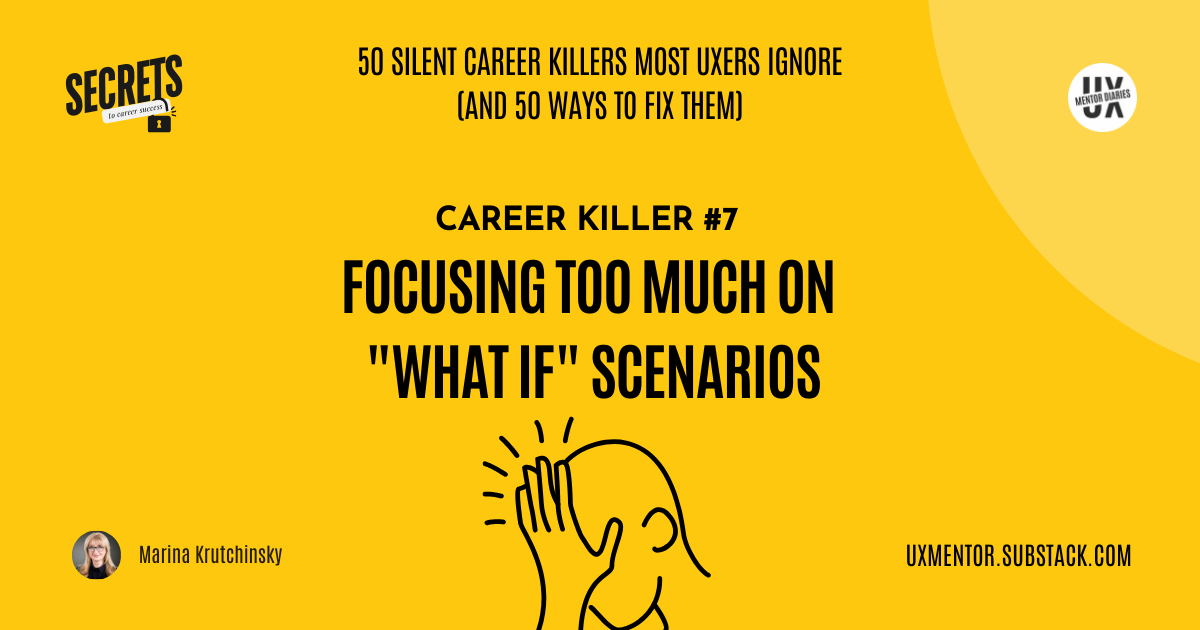🤫 The Silent Career Killer #7
Focusing too much on "What If" scenarios | Unmasking 50 hidden threats to your UX career | part 7 of 50
👋 Hi UX friend, Marina here!
Welcome to this week’s “Secrets to Career Success” 🔒 subscriber-only edition 🔒 of UX Mentor Diaries.
This newsletter series is my attempt to share what I've learned - often the hard way - about the silent career “sins” you may not even realize you’re committing and show easy ways to fix them to propel your career forward - as soon and as fast as possible.
Ok, here is the situation:
You're in a design review.
You've just presented a solid solution backed by research and user testing.
Then it starts:
"But what if the user..."
"What if we need to..."
"What if the market..."
Three hours and countless hypotheticals later, your clear solution has morphed into a complex beast trying to solve for scenarios that might never happen.
Sound familiar? ;)
The Seductive Nature of What-Ifs
As UXers, we pride ourselves on thinking through scenarios and edge cases.
It's part of what makes us good at our jobs.
But there's a dark side to this strength – one that can quietly undermine our effectiveness and career growth.
I've watched talented designers get stuck in endless cycles of hypothetical thinking, their work paralyzed by the weight of countless imagined scenarios.
They think they're being thorough.
In reality, they're building elaborate solutions to problems that don't exist.




